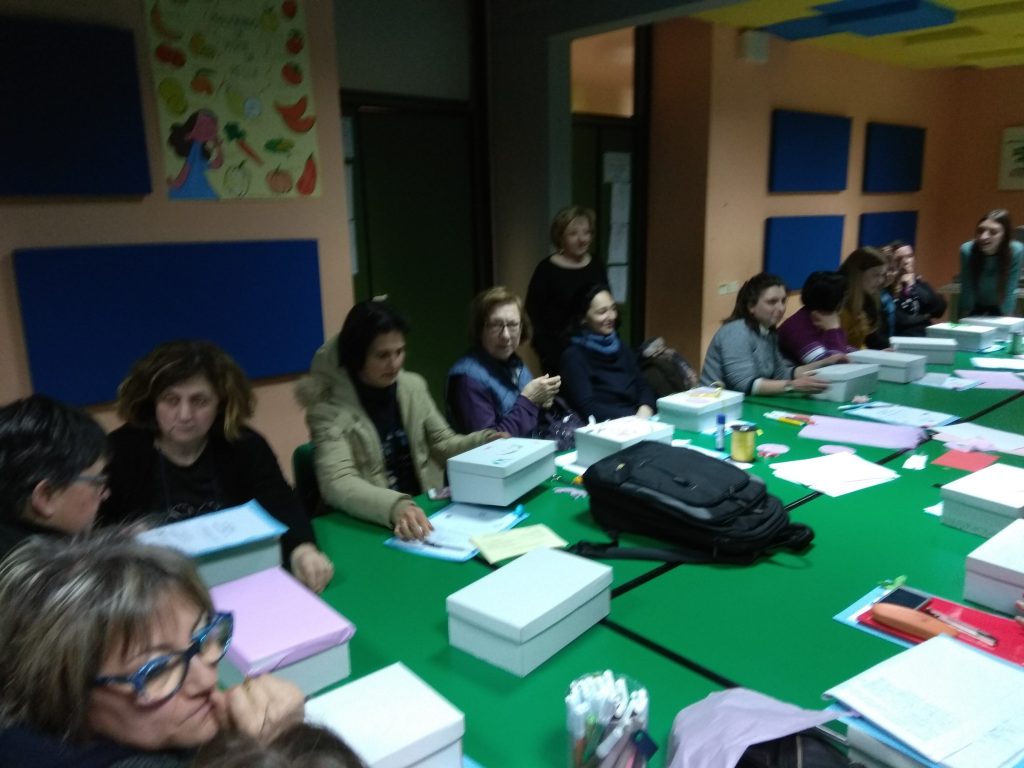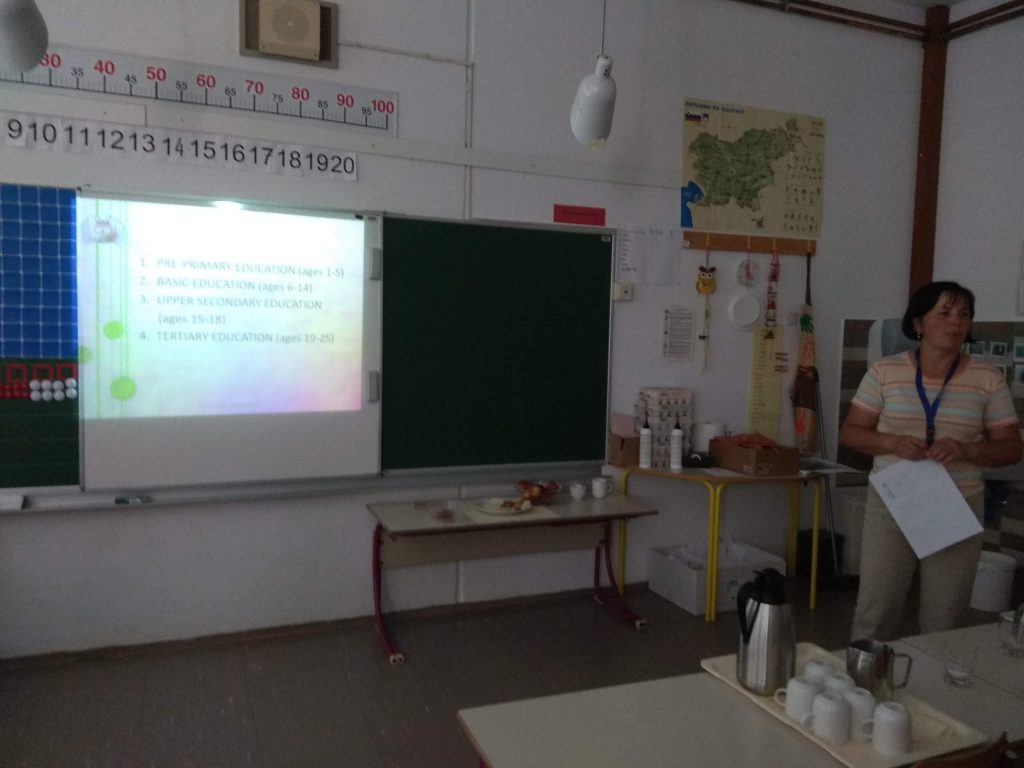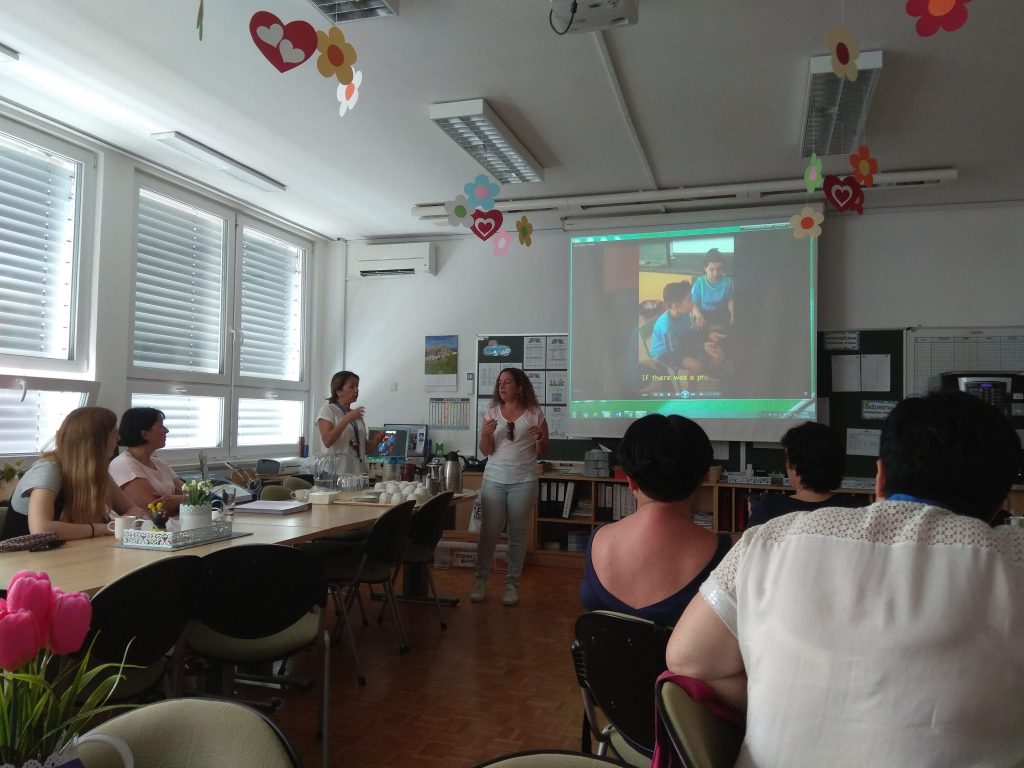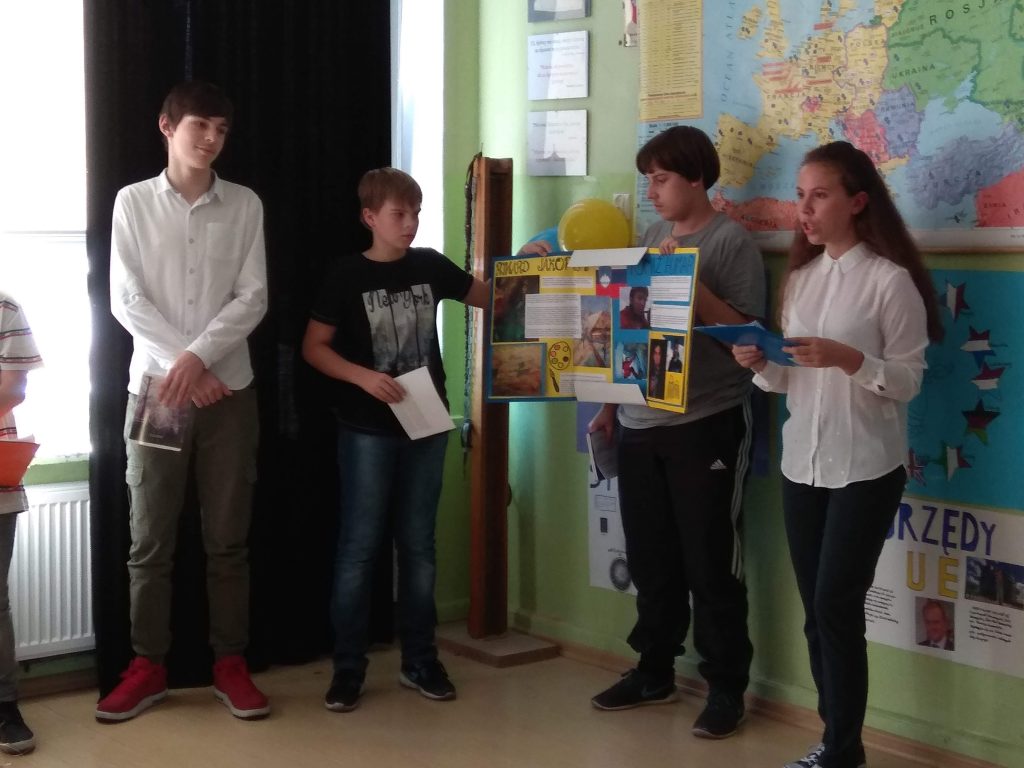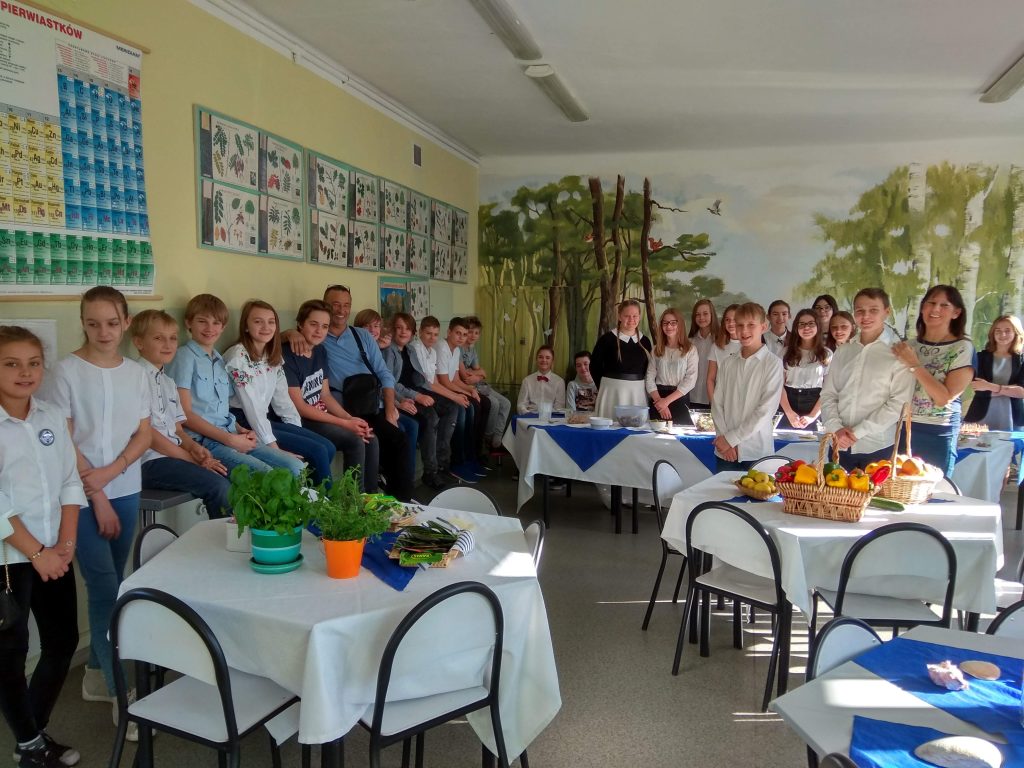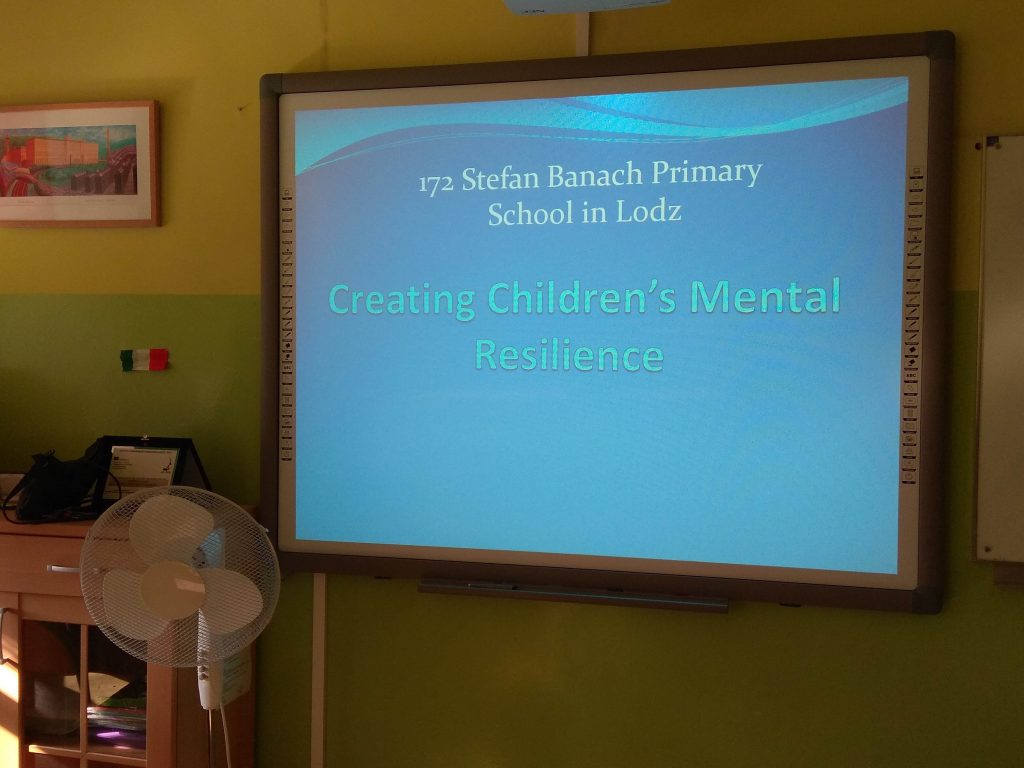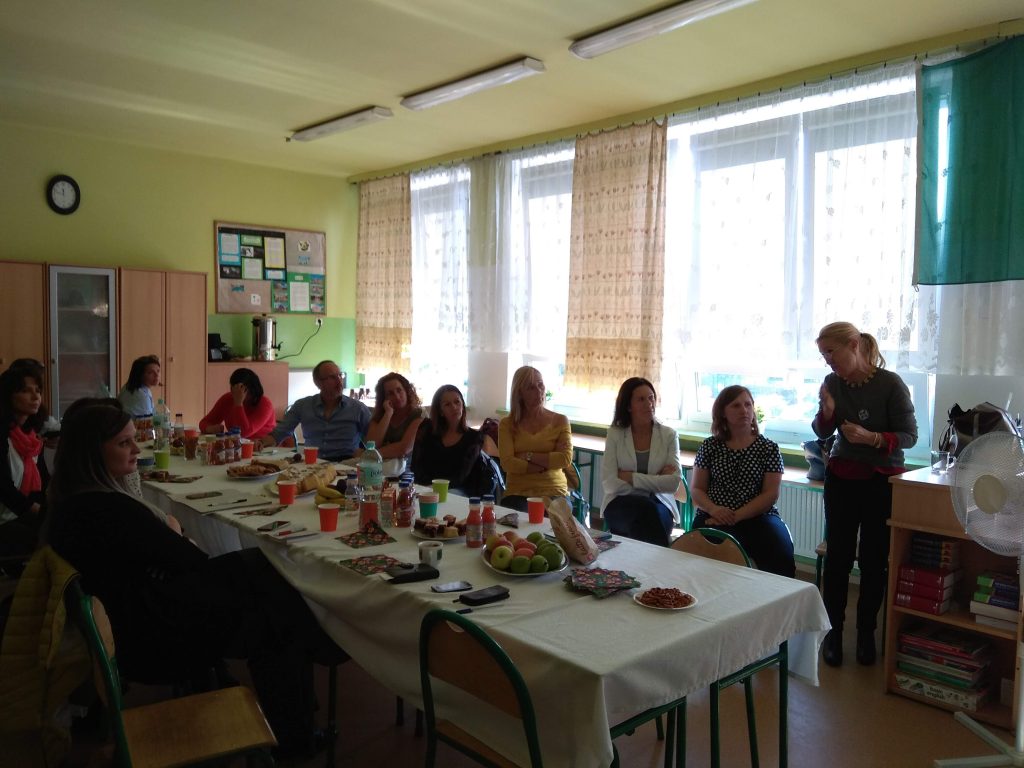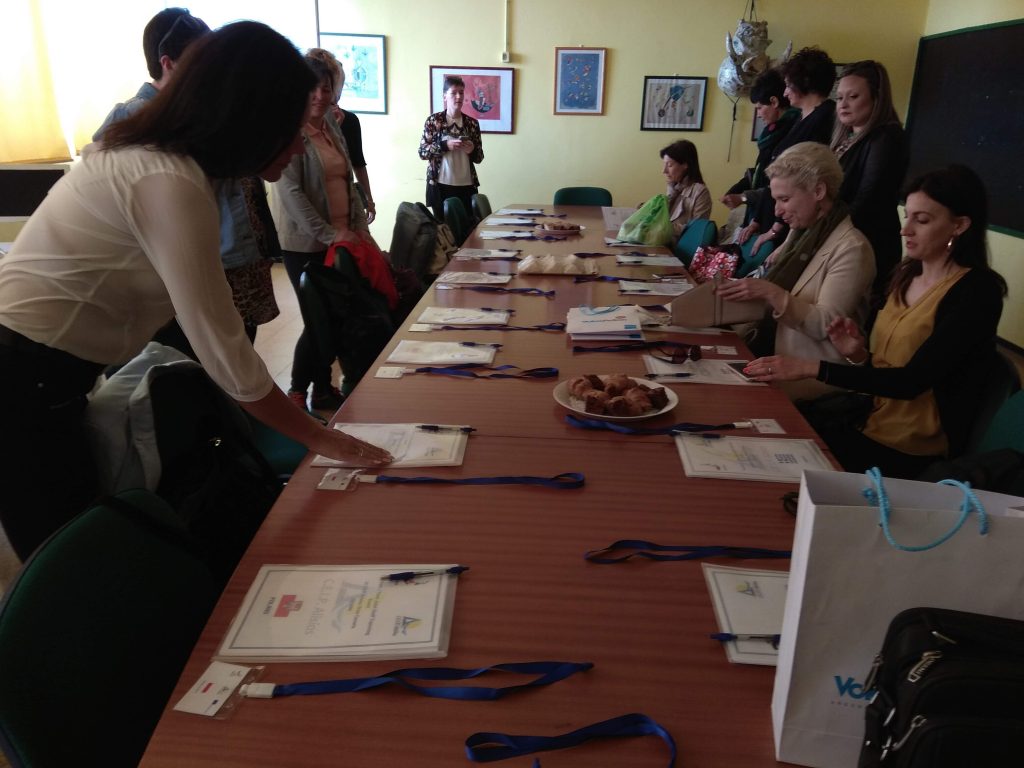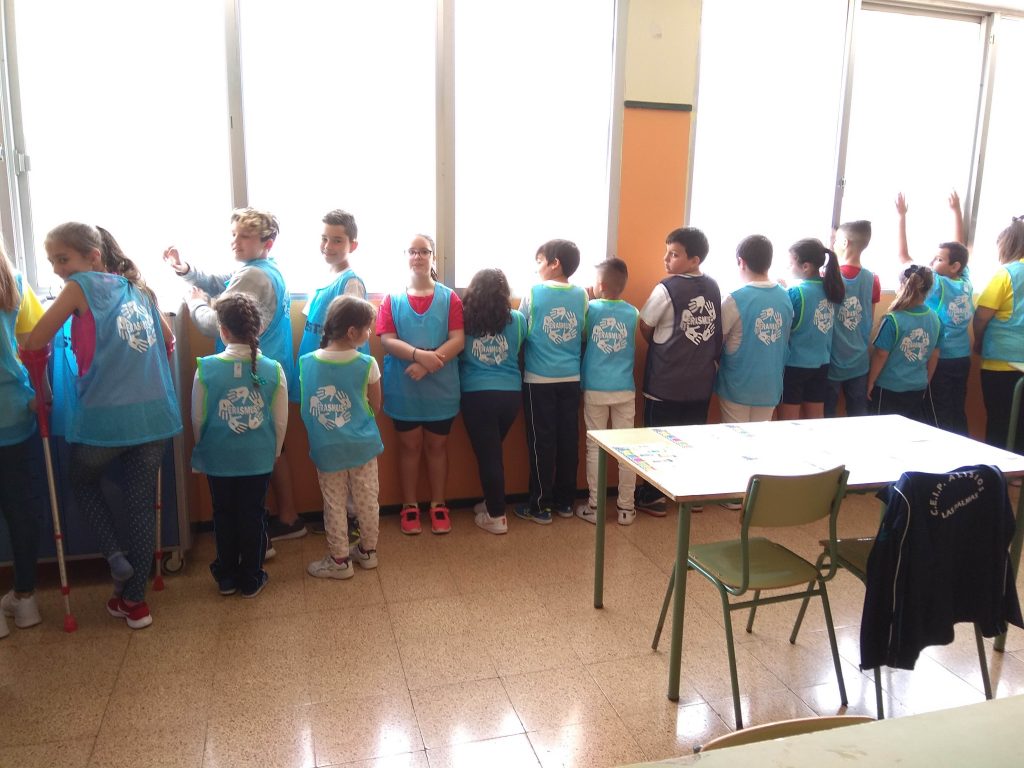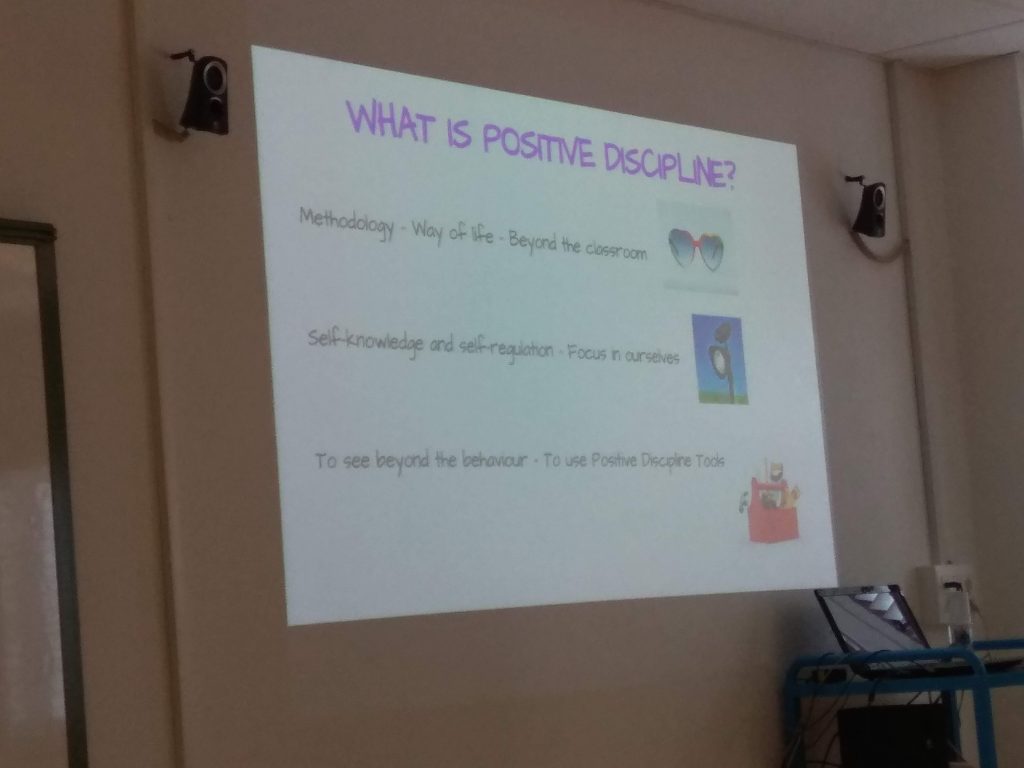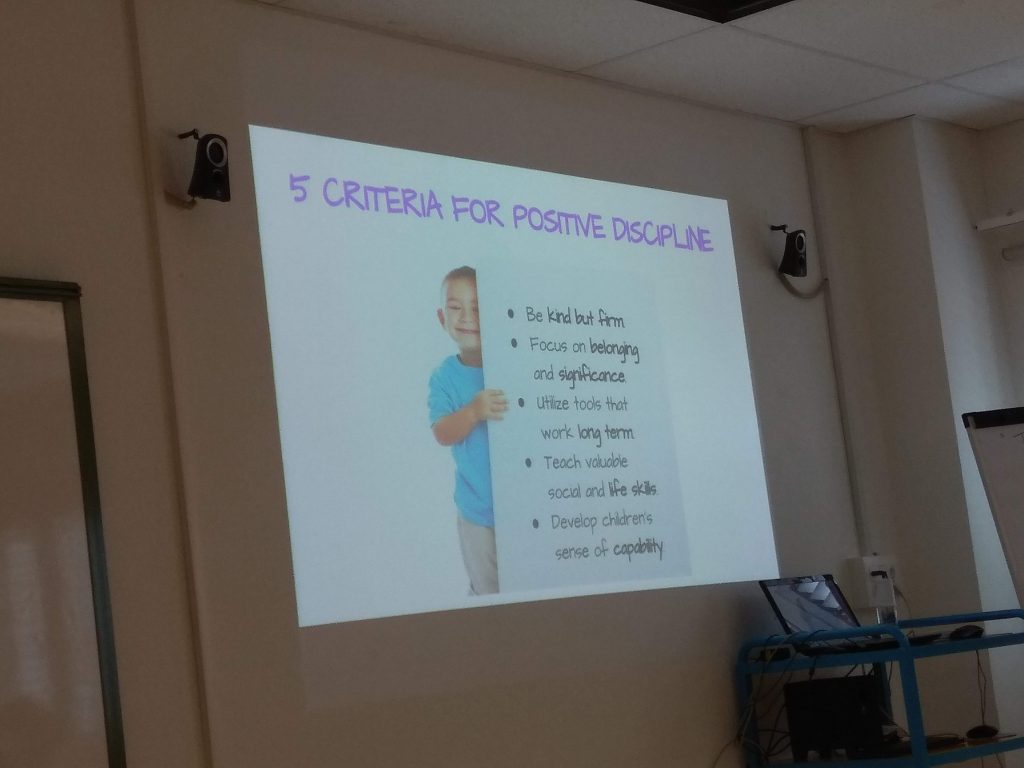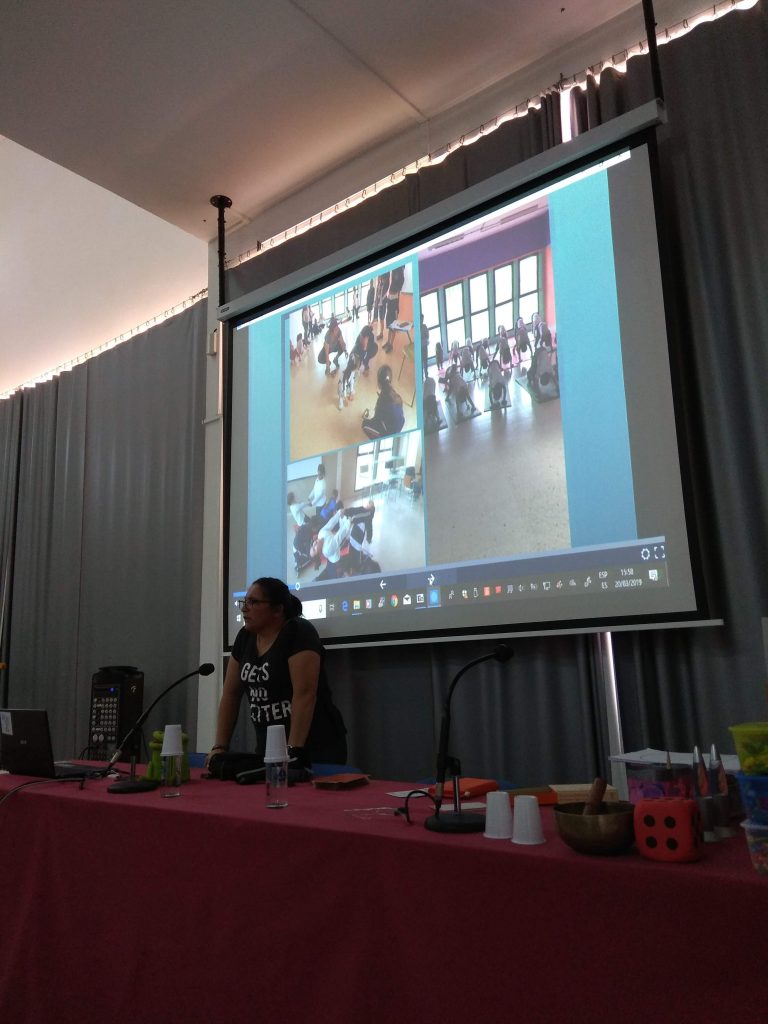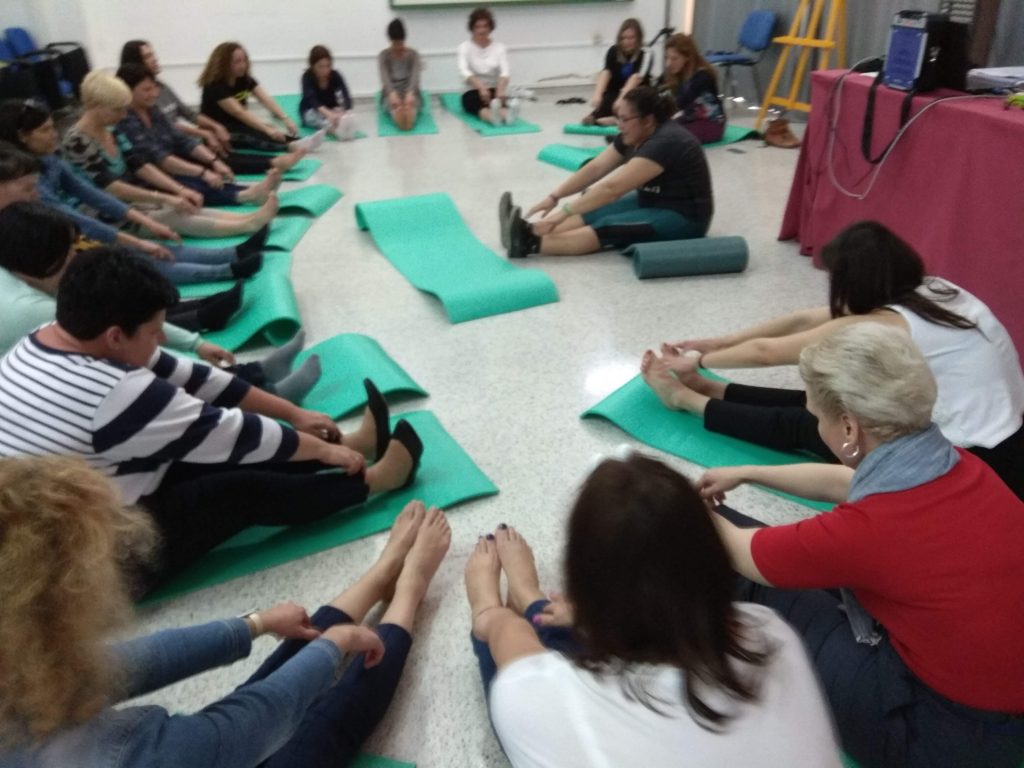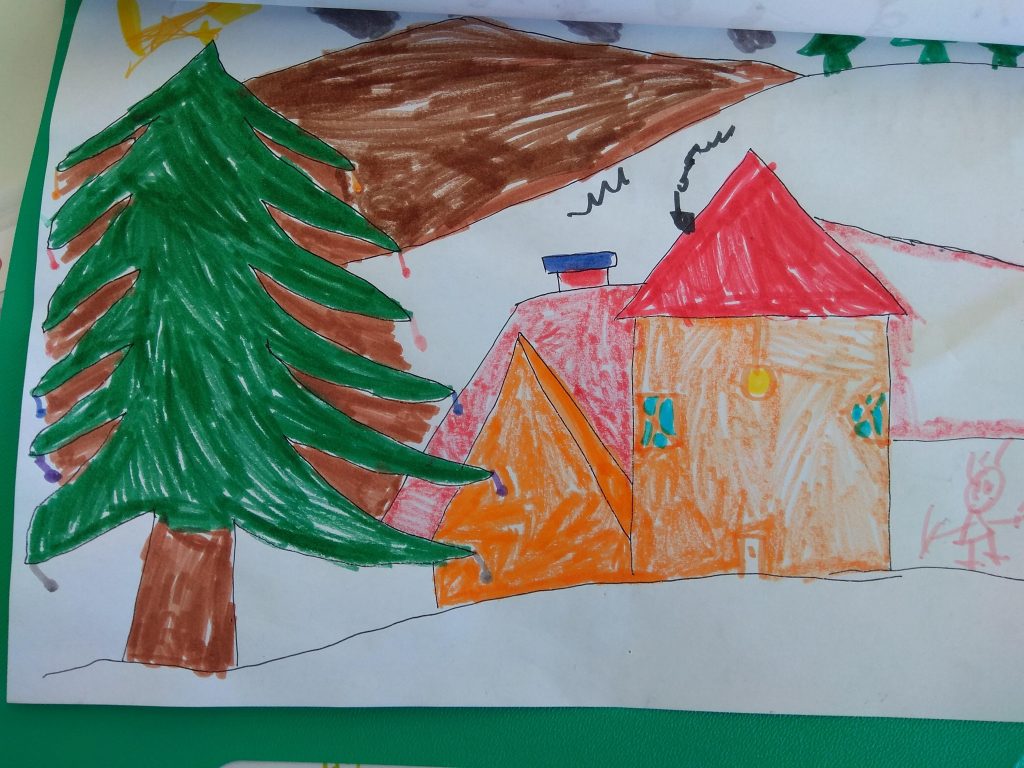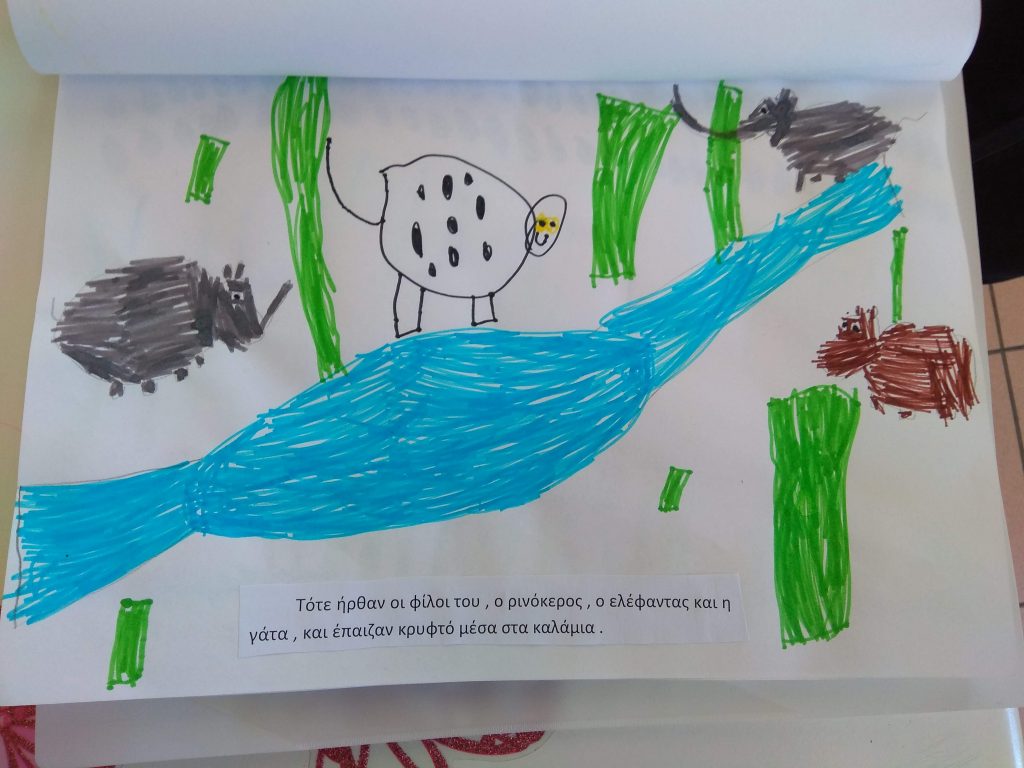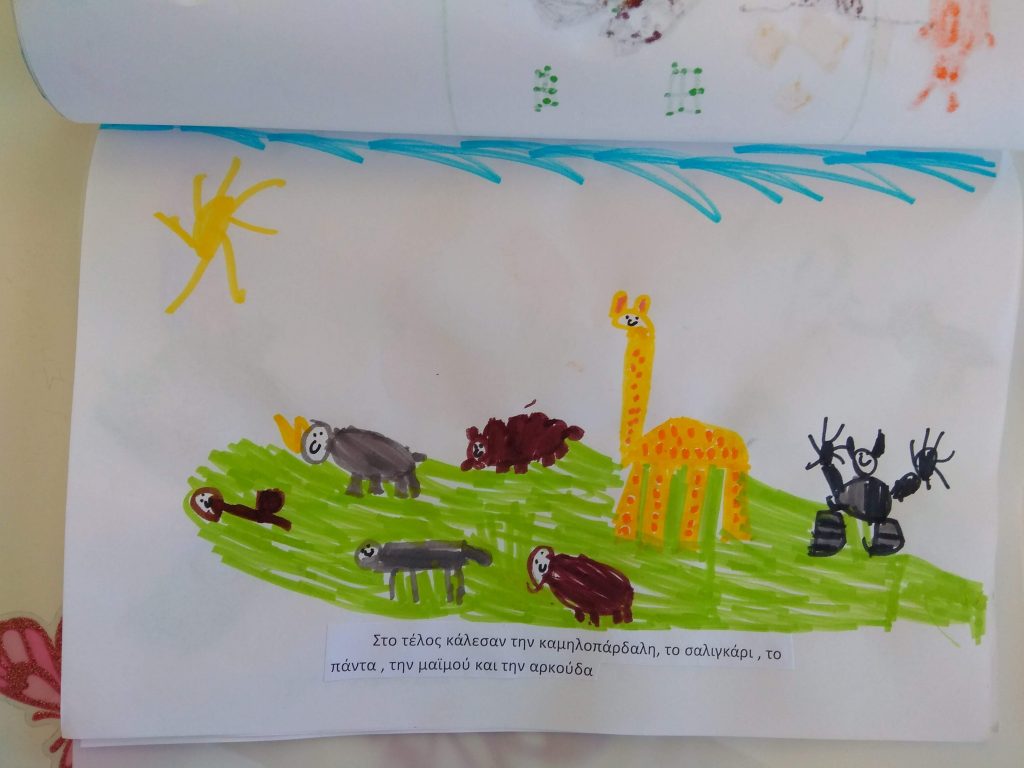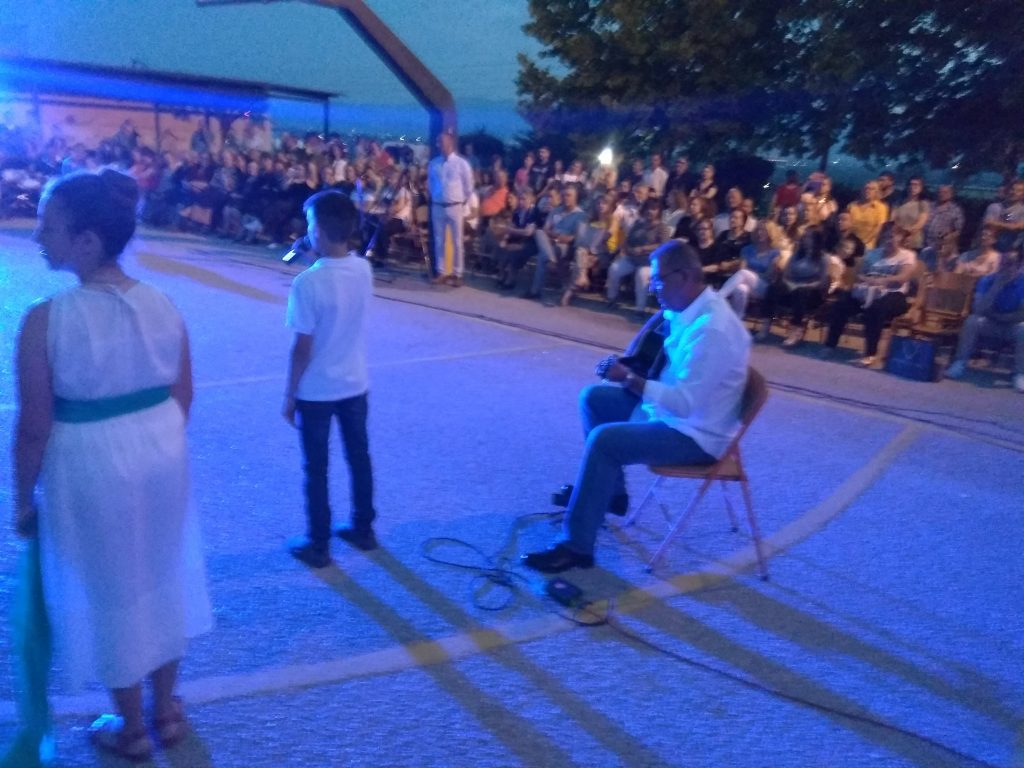An important part of the Project was the implementation of five (5) short-term joint staff training events, one at each school participating in the partnership.
The ERASMUS + European Program provided a unique opportunity for teachers coming from different cultural backgrounds and with different experiences, as they worked in different educational systems to meet, interact, collaborate and build collaborative knowledge in specific subject areas.
Each Short-term Joint Staff Training Event lasted 5 days, focused on a different field of study and was prepared in collaboration with the Host School.
1st STJSTE, 26th February – 2nd March 2018, Italy
The 1st event was implemented from February 26 to March 2, 2018, and its main theme was an introduction to the term “Life Skills”. Its main purpose was to provide participants with the necessary basic theoretical background to the concept of “Life Skills” and to highlight demos in the classroom.
The seminar included a very informative presentation on “Life Skills” by Lucca University experts and associates who took the initiative to list ten (10) key life skills that could be promoted in a school environment.
2nd STJSTE, 4th – 8th June 2018, Slovenia
The theme of the 2nd program was “Promoting European values for students”. The main purpose of the second educational event was to give participants the opportunity to identify, evaluate and produce models of teaching core European values in primary education. The 2nd short-term joint staff training event was held from the 4th to the 8th of June, 2018 in Kranj, Slovenia.
The demonstration of the Greek School with regard to the values of dignity and equality and the right of every person to be respected for their physical and mental integrity was particularly interesting. The demo was a lesson plan, presented as an educational game with daily materials (lemons and apples) used to “visualize” the aforementioned values and promote inclusion and the concept of interdependence.
In addition to the above, during the 2nd event, an intervention was presented, implemented by the Spanish school. The Spanish partners developed a methodology for tackling bullying at the Spanish school by educating students to act as mediators between students. The activity included training in the application of empathy, conflict resolution skills, communication skills, etc.
Finally, the Slovenian partners presented the following: a) A set of educational toys for the school, which promotes collaboration and the concept of belonging to a group b) A very well organized daily seminar given by Mr Vid Sodnik, a recognized artist and actror of improvisation. The theme of the seminar was to introduce the participants to the concept of celebrating mistakes, raising awareness of the given situation and creativity.
3rd STJSTE, 15th – 19th October 2018, Poland
The theme of the 3rd STJSTE, held in Lodz, Poland from 15 to 19 October 2019, was “Resilience 101” and its main objective was to provide participants with general information on the concept of resilience and the methods that can be used to introduce it to primary school students. Participants were expected to meet the skills a person needs to acquire, and especially young pupils, to be able to respond positively to the daily adversities of their school life.
After the active collaboration, the teachers identified concepts such as self-knowledge, self-regulation, mental agility, character strength, connection, and optimism as attitudes to school life. The work continued with a presentation of a methodology and the coping skills students need to deal effectively with situations such as stress, conflict effects and the fight against bullying.
The Polish School presented a project prepared by their senior students, an exhibition of the participating countries on history, modern culture, sports, the arts, and cuisine. Each of their classes had been adapted to host an “exhibition” of a selected country, and they invited each delegation to visit it and “evaluate” the outcome of their efforts.
The Polish partners organized a one-day seminar in collaboration with the Lodz City Educational Counseling Office, which was delivered by an educational partner with experience in utilizing music as a means of promoting cooperativity and a sense of belonging.
The expert delivered the seminar by speaking only in Polish and apart from the obvious lack of understanding, the motivation she provided the participants triggered their cooperation, self-regulation, and mental agility and the participants became able to reproduce classical music scores using simple musical instruments with no prior music knowledge.
The Polish school also presented how they exploit the arts (music, painting and collage) to promote collaboration between 2nd and 3rd grade students through collaborative activities involving also partner school teachers.
4th STJSTE, 18th – 22nd March 2019, Spain
The 4th STJSTE was held in Las Palmas, Spain, from 18 to 22 March 2019. It was hosted by C.E.I.P. ALISIOS and its theme was “Intervention Models to Promote Well-being and Resilience in Primary Students”. The purpose of the event was to enable teachers involved in its works to get acquainted with different approaches to design interventions for students’ well-being through the development of life skills and the teaching of selected values.
The event began with formal host activities and a guided tour of the school, where the host school had the opportunity to present the activities that were completed during the project life cycle.
The main feature of this activity was the tour of the School Mediators Room, where the teachers met with the students, were informed about the methodology of mediation, and were briefed by the coordinator of other activities they designed to promote well-being in their school.
They also showed the “Friendship Games” they designed at the school and introduced the participants to an activity where students greet the teacher or student using “Funny Greetings”. The goal was to improve relationships between peers and school staff.
The 4th STJSTE continued with a one-day seminar organized by the Spanish partners to introduce participants to the application of positive psychology findings in the classroom. The seminar was delivered by a professor at the Local University. During the seminar, participants were encouraged to work in mixed groups to provide solutions and design interventions to address specific problems that commonly occur in everyday school life. The results were shared between the partners both during the seminar and during the plenary session at the end of the program.
The following day, the Spanish partners organized a visit to the Municipal Teacher Support Center, a support structure for Las Palmas primary and secondary teachers. At this Center, participants attended an experiential seminar about mindfulness and how it can be achieved through the introduction of yoga for children in school.
5th STJSTE, 3rd – 7th June, Greece
The 5th Short Term Joint Staff Training Event was held in Nea Anchialos, Greece from 3 to 7 June 2019. It was originally planned to promote the results of all STJSTEs. The partners agreed that presentations postponed during the 4th STJSTE in Spain should be delivered at the next event in Greece, so the work program was modified to meet this need.
On this occasion, the Greek School incorporated in the works of the event a demonstration of anger management, implemented in the 1st grade and an experiential educational drama activity through which empathy can be taught to 3rd and 4th grade students.
In addition to the above, the Greek school had organized a one-day seminar on effective communication and active listening as a means of resolving conflicts. The seminar was delivered by a school psychologist who had worked with the Greek school during the second year of the project’s life cycle.
The works continued with two presentations by the Italian partner that had been postponed during the event in Spain. The Italian partners outlined an effective classroom management system supported by WEB 2.0 applications and an intervention at the classroom level that was designed to improve social dynamics and promote the integration of students with special needs, suffering from ADHD.
Following was a presentation of a demo by a teacher from the Greek School who worked closely with educational consultants on anger management. She used children’s literature in her classroom to teach specific skills to her students.
The works were completed with an open event to the local community, where the school classes presented selected themes that they had dealt with throughout the project life cycle.






